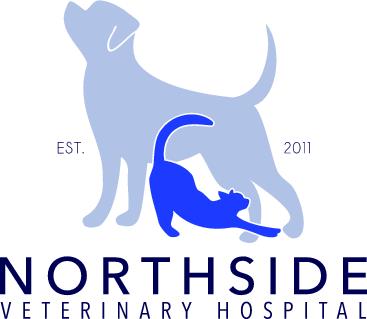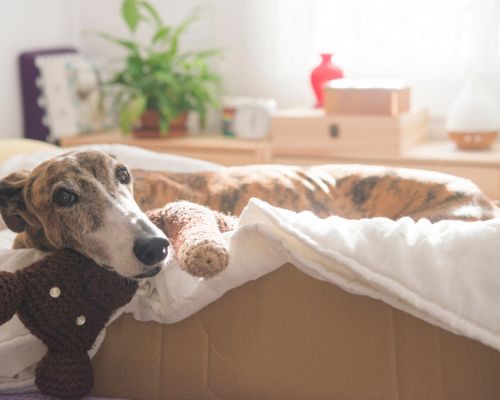Pet Spleenectomy
Splenectomy is the surgical removal of the spleen. The procedure is done on animals and humans. The most common reason for splenectomy is a rupture (from a traffic accident), tumor, or torsion (twisting of the blood vessels in the spleen).
Pet Spleenectomy in Shawnee, OK
What Is the Spleen?
The spleen is an oblong organ that sits below the stomach, inside the left rib cage. The spleen is bigger in dogs and cats than in people and has a liver-like consistency. Although pets can live perfectly without the spleen, it has several functions such as:
Nature’s Blood Bank
The spleen contains numerous long narrow small blood vessels. The spleen stores red blood cells and platelets. In case of a severe hemorrhage that requires extra blood, the body can contract the spleen suddenly, squirting a fresh blood supply. This makes the spleen a natural blood bank in case of acute hemorrhage (bleeding).
Recycling Red Blood Cells
Red blood cells naturally die after 110 to 120 days. The rate of blood cell death is almost similar to the production rate of new blood cells to maintain homeostasis. The spleen removes old blood cells and signals the production of new ones, which work more efficiently.
Helps Fight Infections
The spleen helps control the spread of infections. It contains a lymphatic system, allowing the spleen to act like a lymph node. Lymph nodes are centers of activity for the immune system, especially antibody-producing lymphocytes. The lymphocytes move through the spleen to help fight off infections in the body.
Ability to Remove Infected Red Blood Cells (Pitting)
The spleen can remove a piece of red blood cells without destroying the cell. The immune system marks the site of the red blood cell to be pitted or removed, which helps remove infections of the red blood cells from the circulating cells. This keeps cells functioning without being irreparably damaged if the infection is allowed to spread.
In some instances, entire red cells are removed from the circulatory system preventing the spread of the red cell parasite inside the body. This might seem good and reasonable can get
Diseases of the spleen in dogs
The spleen is prone to diseases that may primarily affect it on its own or may involve other parts of the body. These include:
Malignant tumors or cancers
Some large elderly breed dogs like German Shepherds are predisposed to a type of tumor of the spleen known as hemangioma (benign tumor) or Hemangiosarcoma, a common malignant cancer that can cause serious diseases or death. Older dogs and cats can also get other splenic cancers such as hemangioma, mast cell tumors, multiple myeloma, and lymphosarcoma.
Hemangioma and Hemangiosarcoma are the most common splenic tumors in dogs that arise from the blood vessels of the red pulp, which grow abnormally in the blood vessels. The growths eventually rupture, leading to spleen bleeding. This leads to blood loss and results in pale gums, sudden weakness, and a cold sensation in the body.
Splenic Torsion
Splenic torsion or twisting may occur on its own or accompany gastric dilation and volvulus GDV, a life-threatening condition common in large, deep-chested dog breeds. Enlargement and congestion of the spleen may occur from a twist in the blood vessel and is a severe condition.
Splenic torsion may occur suddenly or gradually twist with time. The dogs commonly affected by this genetic condition include Great Danes, poodles, German Shepherds, Irish Setters, and Basset Hounds. The spleen may twist as a result of stretching of the ligaments that stabilize the spleen, which may occur from excessive rolling, exercise, retching, anxiety, and nervousness.
Ruptured Spleen
In dogs, the spleen can rupture due to severe abdominal injury after a traumatic event (like a car accident) or from a cyst, benign tumor, or cancerous mass. The development of a hematoma (collection of blood) or blood clots from a ruptured spleen can be life-threatening.
Diagnostic Tests
There are several diagnostic tests used to evaluate the spleen, including:
- Abdominal Ultrasound: To identify spleen abnormalities and perform a biopsy.
- Physical Examination to feel a mass in the spleen and to check pulse rate. Blood pressure measurements are also done.
- Complete Blood Count(CBC): To screen for anemia, infectious diseases, certain cancers, and bone marrow aspiration.
- Radiographs: Digital X-rays for abdominal examination. An electrocardiogram (ECG) test, MRI (magnetic resonance imaging), and a CT (computed tomography) scan may also be performed.
- Tissue Samples: Samples from the spleen are taken to analyze the cells (cell analysis) and culture. This is done during abdominal surgery.
- Coagulation Testing: To rule out clotting disorders due to rat bait ingestion or other conditions.
Spleen Treatment
A ruptured spleen requires emergency stabilization, including blood transfusion, oxygen therapy, and IV (intravenous) fluids.
Non-traumatic hemoabdomen, tumors, and blunt force trauma that causes excessive bleeding require surgery to stop bleeding.
A splenectomy is done under general anesthesia to remove the affected organ (the spleen). Some tissue samples may be taken for biopsy. If the spleen has a tumor, chemotherapy may be indicated.
Recovery
After surgery, your pet will need to stay in the hospital for close monitoring. Once your pet is stabilized, it will be discharged and given oral prescription medicine such as iron supplements, pain medication, and antibiotics. Medication may be provided to treat arrhythmias if the splenic disease has led to it.
Ensure you follow your veterinarian’s instructions on postoperative care for quick healing and recovery. Exercise and any other activities should be restricted for at least 2 weeks after surgery.
Use an Elizabeth collar to prevent your dog from licking or removing the stitches at the incision site. In case of any changes in your dog’s behavior, mood, or recovery, contact your veterinarian as soon as possible.
For more information, contact Northside Veterinary Hospital today to schedule an appointment.

